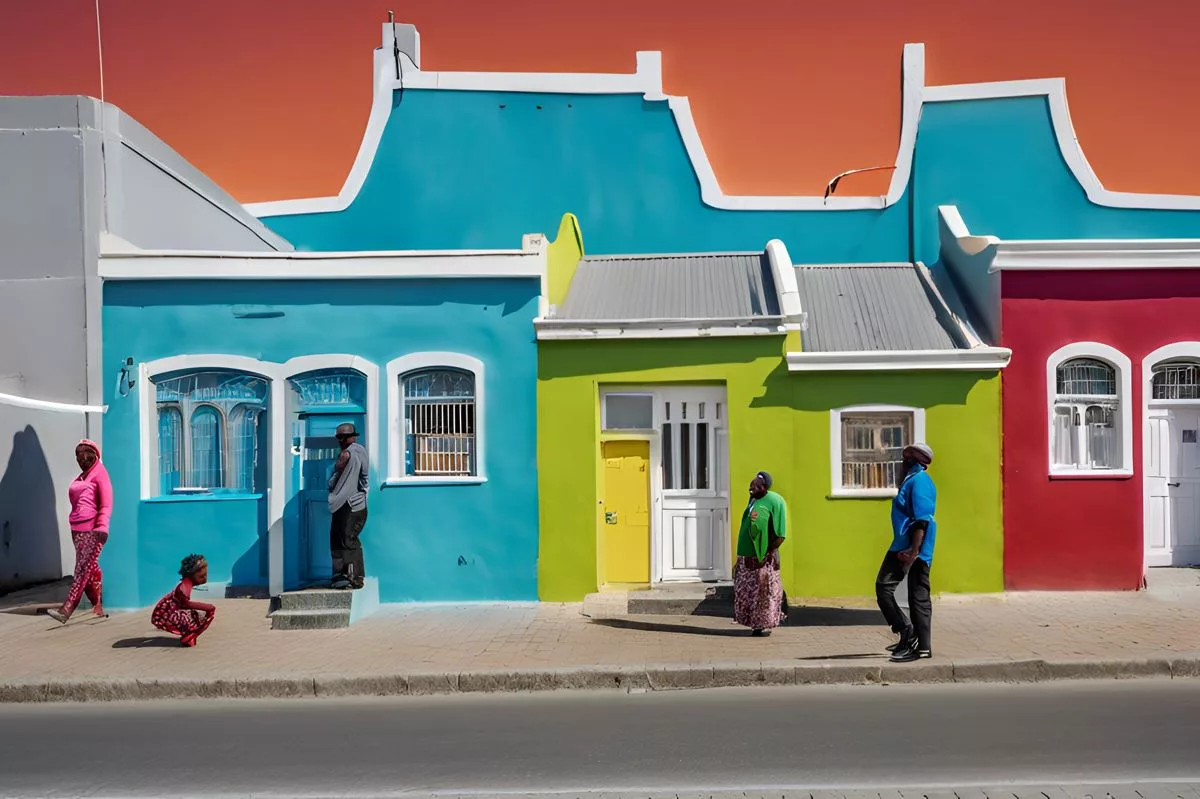South Africa’s banking scene is shaking things up in exciting ways! Old Mutual is gearing up to launch a new bank in 2025, ready to compete with big names like FirstRand and Absa. Meanwhile, HSBC is stepping back to focus on Asia, letting FirstRand take over its local operations. This means more choices and fresh ideas for customers, as banks adapt to the changing landscape. With lots of money and a strong plan behind Old Mutual, the future looks bright and full of possibilities for South African banking!
What changes are occurring in South Africa’s banking sector?
South Africa’s banking sector is undergoing significant changes, with Old Mutual planning to enter the market in 2025 and HSBC exiting to focus on Asia. FirstRand Bank will acquire HSBC’s local operations, shaping a competitive landscape that encourages innovation and adaptation among traditional and digital banks.
South Africa’s banking sector is on the brink of significant transformation. With Old Mutual preparing to enter the banking domain and HSBC planning a strategic exit, the landscape is set for profound shifts. These changes reflect the dynamic and ever-evolving nature of the global financial markets.
FirstRand Limited plays a crucial role in this transition, highlighting its importance in the sector. The company has confirmed that it will take over HSBC Bank plc’s South African clients, assets, liabilities, and employees through its subsidiary, FirstRand Bank Limited (FRB). This transition is being facilitated by Rand Merchant Bank (RMB), FirstRand’s corporate and investment banking franchise, and is expected to be completed by late 2025. This strategic acquisition showcases the fluidity and responsiveness of South Africa’s banking institutions.
HSBC’s exit from South Africa is part of a larger strategic pivot towards Asia, a region perceived to offer more lucrative growth opportunities. This move will reshape the competitive dynamics within South Africa’s banking sector. While HSBC’s departure is significant, it opens up opportunities for local banks to fill the gap and adapt to new market conditions.
Old Mutual’s Ambitious Entry
Concurrently, Old Mutual is gearing up to make a substantial impact in the banking sector. Having secured regulatory approval, the company plans to launch its new bank in 2025. The Prudential Authority has confirmed the operational readiness of Old Mutual’s systems. Highlighting a commitment to innovative financial solutions, Old Mutual’s CEO, Iain Williamson, expressed enthusiasm for this new venture.
The launch will be executed in three meticulously planned stages. The first stage is a public launch set for the first quarter of 2025. This will be followed by a campaign aiming to convert their existing money account customers. The final stage will initiate full-scale operations. This phased approach ensures a smooth transition and integration into the competitive banking landscape.
Old Mutual’s entry positions it against reputable competitors such as Absa Bank, FirstRand’s First National Bank, and Standard Bank. Additionally, it will compete with digital newcomers like Discovery Bank. Targeting affluent customers, Old Mutual plans to leverage its extensive insurance experience to offer distinctive banking solutions.
Financial Commitment and Leadership
Old Mutual’s banking venture is backed by substantial financial resources. With an initial budget of R1.75 billion, the company has secured an additional R800 million to support the project’s launch. This financial commitment underscores the ambition and seriousness behind Old Mutual’s banking endeavor.
Clarence Nethengwe has been appointed as the CEO-designate of Old Mutual’s new bank, set to officially take over on November 1, 2024. His leadership will be vital in steering the bank through the competitive and regulatory complexities of South Africa’s banking sector.
These developments are in line with broader trends observed in the global banking industry. The focus shift of large banks like HSBC towards Asia underscores the growing economic importance of that region. Meanwhile, local banks in South Africa exhibit resilience and adaptability, ready to seize new opportunities.
Historical Parallels and Technological Influence
The narrative of South Africa’s banking sector is one of constant evolution. Historical movements, such as the Renaissance and Modernism, find parallels in the financial world. Just as artists and thinkers pushed boundaries and redefined norms, today’s banks innovate and adapt to remain relevant in a rapidly changing world.
Old Mutual’s venture into banking mirrors the Renaissance’s spirit of exploration. With a solid foundation in insurance, Old Mutual now seeks new horizons in banking. This move highlights a broader trend of convergence in financial services, where traditional boundaries blur, providing customers with more integrated solutions.
Conversely, HSBC’s strategic withdrawal aligns with the Modernist theme of rationalization. By focusing on Asia, HSBC aims to streamline its operations and optimize growth. This decision reflects a pragmatic approach, ensuring resources are aligned with strategic priorities.
Furthermore, technology plays a critical role in modern banking. Digital transformation is now essential rather than optional. Old Mutual’s phased launch and focus on affluent customers demonstrate a tech-savvy approach, crucial in attracting and retaining a discerning clientele.
Competitive Dynamics and Future Prospects
The competitive landscape in South Africa’s banking sector is set for a substantial shake-up. Established local banks and new entrants like Old Mutual must continuously innovate to remain relevant. The emergence of digital banks adds another layer of competition, compelling traditional banks to enhance their digital offerings.
The financial landscape in South Africa, much like in many parts of the world, is a complex tapestry woven with threads of history, innovation, and strategic repositioning. Banks, similar to the artists and thinkers of historical movements, must constantly adapt, innovate, and redefine their roles in society.
In conclusion, South Africa’s banking sector is poised for transformative change. With Old Mutual’s ambitious entry and HSBC’s strategic exit, the landscape will witness a fascinating interplay of competition, innovation, and strategic realignment. As these changes unfold, the sector’s resilience and adaptability will be tested, reflecting broader global trends and the relentless march of progress in the financial world.
FAQ: South Africa’s Banking Landscape
What significant changes are happening in South Africa’s banking sector?
South Africa’s banking sector is experiencing transformative changes, including Old Mutual’s plan to establish a new bank in 2025 and HSBC’s exit to focus on Asian markets. FirstRand Bank will acquire HSBC’s local operations, leading to a more competitive environment that encourages innovation among both traditional and digital banks.
How will Old Mutual’s entry impact the banking landscape?
Old Mutual’s entry is set to shake up the market by introducing innovative banking solutions, targeting affluent customers, and leveraging its extensive experience in insurance. The company has a solid plan with a phased launch approach, competing against established players like Absa and FirstRand’s First National Bank, as well as digital newcomers like Discovery Bank.
What is the timeline for Old Mutual’s bank launch?
Old Mutual plans to launch its new bank in three stages, starting with a public launch in the first quarter of 2025. This will be followed by efforts to convert existing money account customers, culminating in full-scale operations. The strategic approach aims to ensure a smooth integration into the competitive banking sector.
Why is HSBC exiting the South African market?
HSBC is exiting South Africa as part of a strategic move to concentrate on growth opportunities in Asia. This shift allows HSBC to streamline its operations and allocate resources to regions perceived to offer better potential for expansion, thereby reshaping the competitive dynamics within South Africa’s banking sector.
Who is leading Old Mutual’s new banking venture?
Clarence Nethengwe has been appointed as the CEO-designate of Old Mutual’s new bank, officially taking over on November 1, 2024. His leadership will be crucial in navigating the complexities of the South African banking landscape and ensuring the success of the new venture.
How does technology influence the evolving banking sector in South Africa?
Technology plays a vital role in modern banking, with digital transformation being essential for banks to attract and retain customers. Old Mutual’s planned phased launch reflects a tech-savvy approach, highlighting the need for continuous innovation to remain relevant amidst growing competition from digital banks and emerging financial technologies.












